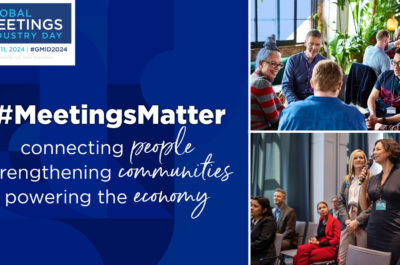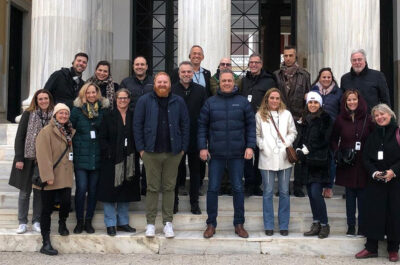An issue that has come to the fore as a result of the Conference Cloud campaign is venues wanting to offer free Wi-Fi to delegates, but being limited by long standing contractual commitment with service providers.
Venues, PCOs and technology providers came together at International Confex last week to explore how to develop models for offering Wi-Fi free of charge to conference delegates as part of the ABPCO Conference Cloud campaign.
The session, hosted by ABPCO Head of External Relations Michael Foreman, featured a panel made up of William Jones of Max WiFi, Justin Hollins of iBAHN and Mike Clanton of mymeetingprofessional.com. The focus of the discussion was to consider the true costs of the infrastructure required, how these costs can be addressed and the end user experience.
Justin Hollins of iBAHN spoke about the issues of cost and ROI: “Wi-Fi must reflect the type of usage. As people upgrade their phones and other technology, Wi-Fi should also be upgraded. We need to plan for the future and budget for Wi-Fi as it has become a basic human need.
“As a venue you should expect a return on your Wi-Fi investment, but that’s not to say that it shouldn’t be free to delegates. Perhaps you could charge only the heavy users – on average 5% of attendees. Look at what people want – where’s the harm in offering 30 minutes free to everybody? Would people be willing to pay for a premium service?”
Hollins also looked at the importance of driving delegate behaviour whilst they are connected through Wi-Fi: “They may be getting free Wi-Fi, but remind them that it is yours. Apps can help with this and also provide another platform to offer sponsorship.”
An issue that has come to the fore as a result of the Conference Cloud campaign is venues wanting to offer free Wi-Fi to delegates, but being limited by long standing contractual commitment with service providers. One solution offered in this session was to consider other revenue sources to offset the cost of offering free Wi-Fi, such as sponsorship of the landing page.
Williams Jones of Max WiFi outlined strategies for recouping some of the costs of upgrading hardware: “Technology is moving at such a pace that within three or four years it is becoming obsolete. Your Wi-Fi investments have a shelf life, but the kit can be re-used – shifting old tech from a heavy traffic area to a quieter area, for example. Some of the kit may even be able to be re-sold.”
Mike Clanton closed the session with a reminder that it is the users alone who determine the quality of the Wi-Fi on offer. “People consume bandwidth differently. Therefore bandwidth should be based on expectations and uses, not on contracts.”
ABPCO Chair Jennifer Jenkins added: “Conference Cloud has made huge strides in terms of highlighting the importance of wi-fi as the life blood of interactive events, but there is still a need for further understanding and new models that help venues to offer an effective wi-fi solution to PCOs and their clients. It was great to get all parties together and discuss some of the possible solutions and take another step forward in the wi-fi debate.”
The ABPCO Conference Cloud campaign currently has in excess of 200 venues committed to offering free Wi-Fi to delegates.
Theodore is the Co-Founder and Managing Editor of TravelDailyNews Media Network; his responsibilities include business development and planning for TravelDailyNews long-term opportunities.





































































































































